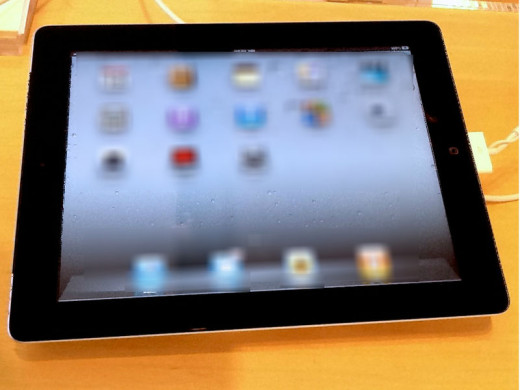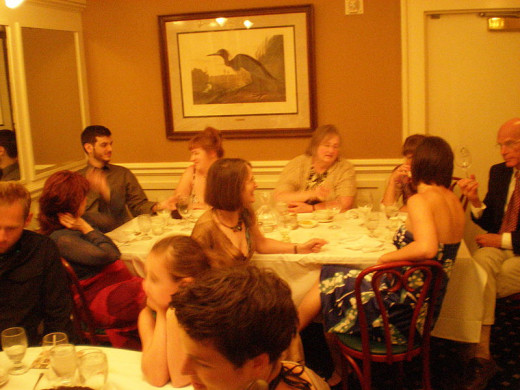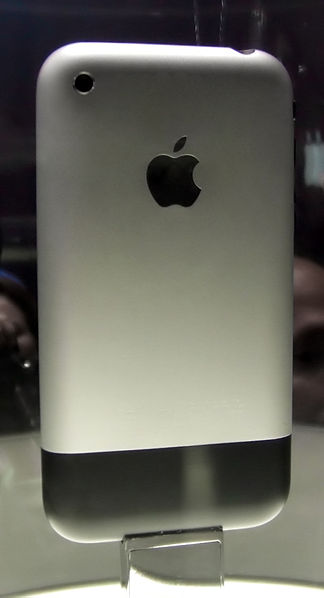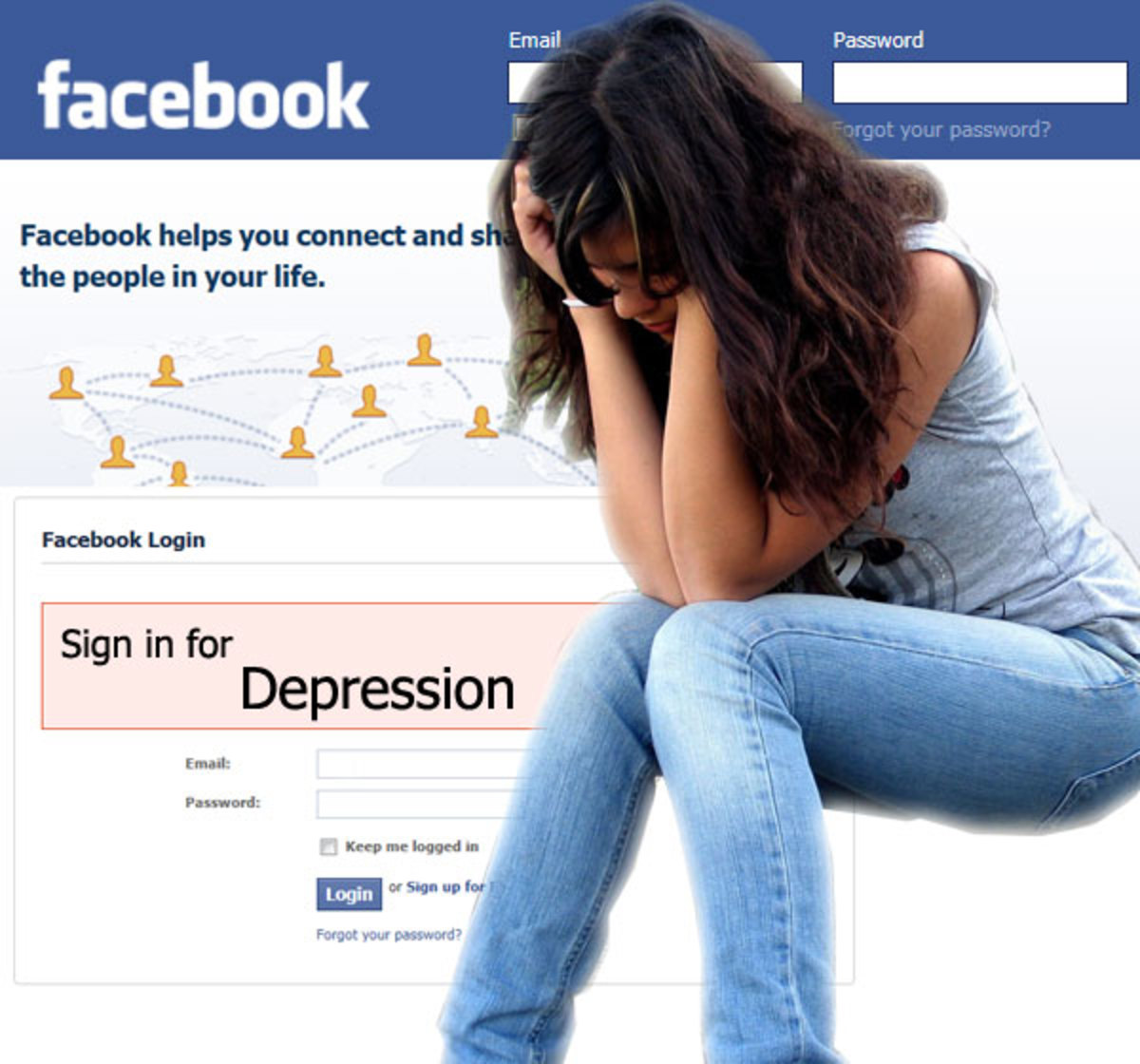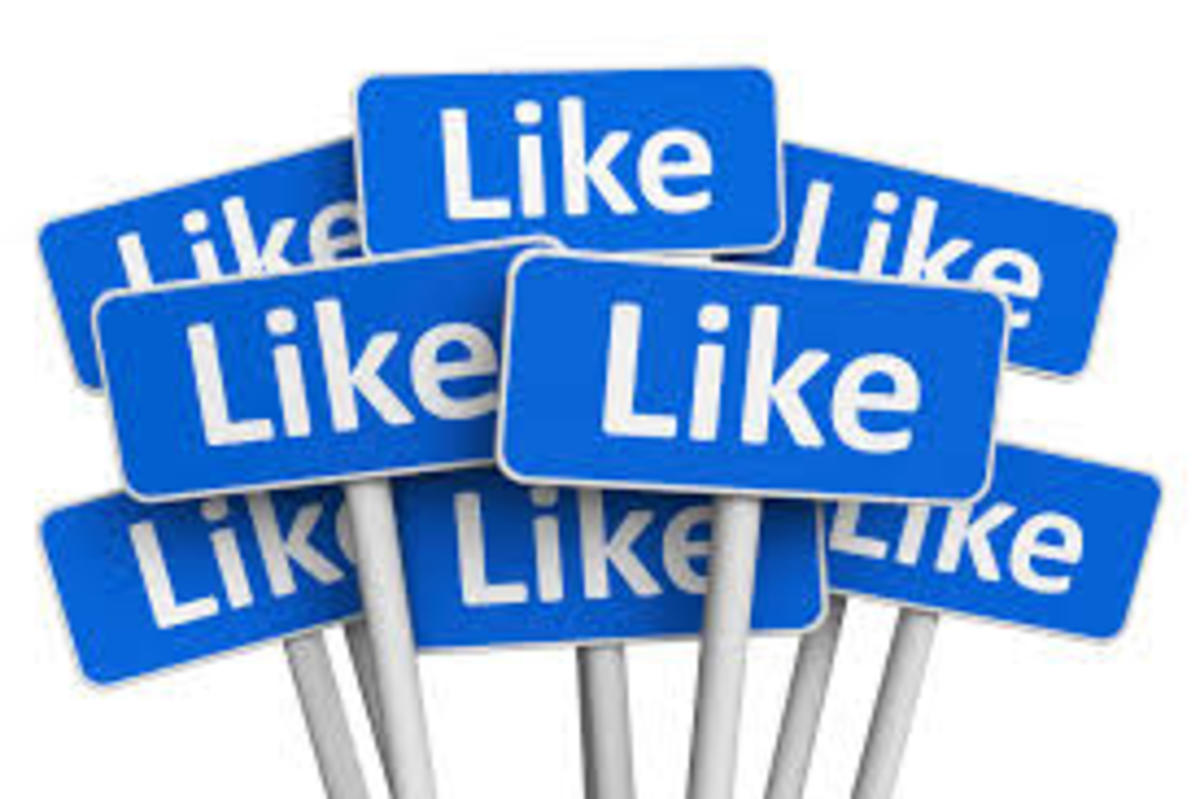How to Stop Technology... From Ruining Your Life
Technology Causes Multiple Problems
Technology, particularly the internet, is making us dumb. Not only that, it’s interfering with our lives in a number of ways. Eroding privacy, multitasking, texting while driving and decaying family relationships are just a few of the hazards we face from overuse of technology. It’s been five years since author Nicolas Carr wrote his famous essay “Is Google Making Us Stupid?” and in that time, things have not changed for the better; in fact, they’ve gotten much worse, and we face more hazards from technology than ever before.
In the past five years, SAT scores have plunged to historic all-time lows; the United States has been ranked “mediocre” in world educational standing, multitasking has contributed to lower production in the work force, privacy has eroded tremendously and texting while driving has led to thousands of deaths. As time marches on and the technology evangelists continue their unrelenting assault on the American way of life, our society has become “gadget blind;” so enamored of our little screens that we’ve stopped paying attention to the harm that’s befallen us- the complete addiction to gadgets at the expense of our intellect, our relationships and the quality of our lives.
Millennials Are Failing
When it comes to the Millennial generation, things are grim. The need for remediation in college is growing by leaps and bounds, as high school students enter their freshman year not knowing the basics of reading, writing and math. Employers can’t find young employees who know how to send an email, hold a phone conversation, make eye contact or use a spreadsheet. They’re finding that recent college graduates are so damaged by multitasking that getting them to focus is impossible, and that the only marketable skills graduates have are centered solely around how to use social media. Unfortunately, there are a limited number of social media jobs available, and people in hiring positions are struggling to fill open positions with skilled candidates.
Socially, Millennials have low self-esteem and have trouble holding real-life conversations. They’ve been coddled and babied by their parents to such a great degree that it is not unusual for college professors or employers to receive phone calls from parents demanding that their children be promoted or given a passing grade. Millennials do not know how to assert themselves or communicate clearly; they’re too busy looking at Twitter and Facebook or checking in to Foursquare.
Amateurs Have Taken Over and Access to Quality Art/Film/Books is Shrinking
“The Cult of the Amateur” a term phrased by the author Andrew Keen, has destroyed real journalism as “citizen journalists,” who often give out incorrect news reports, have made newspapers obsolete. Amateur musicians and filmmakers, most peddling very low-quality songs and films, have dominated YouTube, offering their work for free, setting the tone for professional artists, musicians and filmmakers to be expected to do the same. A culture of piracy (stealing) has made it nearly impossible for artists to make a living.
Access to books and film has been greatly reduced as bookstores continue to close up shop and libraries shutter their doors due to lack of funding. For many people with no bookstore near them, it is not possible to obtain a real paper book on the same day they wish to read it. They are forced to wait days or even weeks to have the book delivered from a virtual shop. Online movie rental stores have a horribly limited selection, and brick-and-mortar video stores are almost all completely closed.
Privacy is Dead and Everyone is Addicted to their Gadgets
There is no such thing as privacy anymore. The American public’s digital life is being recorded and stored at all times. Every phone call you make, every email you send, every status update you post to Facebook, every “private” instant message conversation, every website you visit and more is being captured and stored, according to numerous National Security Agency whistleblowers. You’re being spied on 24 hours a day, every day.
At dinner tables all over the United States, families have stopped talking to each other. Instead, they’re absorbed in their screens, and rarely look up to converse with anyone. Restaurants have become quiet as people cling to their devices, staring and swiping, their faces illuminated like ghosts by the light emanating from the screen. At movie theaters, it’s getting increasingly difficult to see the film because the light from people’s cell phones blinds everyone sitting behind the person using it.
Numerous books have been written about this very topic, including the excellent The Shallows, What the Internet is Doing to Our Brains and Digital Vertigo-How Today’s Online Social Revolution is Dividing, Diminishing and Disorienting Us along with many others. However, folks simply do not want to acknowledge the downsides of technology either because they don’t want to be inconvenienced or because they’re afraid of being labeled a “Luddite.”
What Can We Do About It? Steps You Can Take Today to Reclaim Your Life
For those of us who do care about all of the issues mentioned above, there are steps that can be taken to combat the pervasive presence of gadgets in our lives. Here are some tips and tricks you can put into place today to stem the tide of destruction perpetrated upon us by Silicon Valley.
1. Check your gadgets at the door: When you come home from work, check your gadget at the door. You could even set up a “gadget bin” that gets locked for the evening. Close up laptops and have designated family time. Do not let your children use social media during this period. In fact, the American Pediatric Association recommends no more than 2 hours of total screen time per day for children over two and no screen time at all for children under two years of age. That means all screens, including TV, computer, cell phone and iPad. Sorry, parents, it’s actually really bad to let your toddler use an iPad, despite what the evil dictators…oops… that should say “executives” at Apple want you to think.
2. Throw a gadget-free gathering: Remember when your friends used to sit around and talk to each other, engaging in deep, meaningful conversations that made you feel bonded and supported? Have you recently had the experience of being interrupted in the middle of a sentence only to have your friend say “excuse me, but I have to take this call?” Worse yet, have you sat and seethed while your friend (or even spouse) stared down at his or her phone, with fingers flying, texting some unknown companion or co-worker? If you answered yes to any of these questions, try this: have a party and make it a strict rule that no gadgets are allowed. You’ll have to (gasp!) interact with each other just like in “olden times.” If someone doesn’t like it, they should stay home.
3. Drive to your closest local bookstore: Take the family and reserve a weekend to support your closest local bookstore. Make your next 100 book purchases books from that store and stay away from online mega corporations. Buy local and buy often. Just because physical bookstores are being driven out of business by the thousands doesn’t mean we can’t still fight to keep them open.
4. Turn off your phone while driving: If you take only one recommendation seriously, please make it this one. It is very dangerous to talk and drive and even more dangerous to text and drive, so just turn off your phone before you get into your car. If you absolutely must leave your phone on, there are plenty of apps available to stop texting while driving, so consider checking them out.
5. Stop trying to multitask-it’s a myth anyway: It’s a well-established fact that effective multitasking is a myth. As much as Millennials and even some adults like to think that they are very good at multitasking, studies show that they’re grossly overestimating their own abilities. Only about 2% of the population are considered to be “super taskers” and can actually multitask. The rest of us are just rapidly shifting between tasks, and this lessens our productivity. What’s more, consistent multitasking reinforces neurotic behaviors. Turn off the television, radio and computer when you’re reading and make your children do the same. Talk to your kids about how bad multitasking is for their brains and make sure they’re not using social media or watching TV while they’re doing homework. Pick up The Myth of Multitasking by David Crenshaw, and share it with your friends.
6. Talk to your elected officials about privacy, and follow the ACLU’s efforts on privacy legislation: It’s a fact that the American public is being spied by the NSA, but people remain very blasé when they find out that everything they do, digitally, is being recorded. If you’re concerned about your privacy, make it known to your elected officials, and follow the ACLU’s website; they’re trying to protect us against a growing threat of which many are not even aware. Get engaged in this, because the potential for abuse of your information is frighteningly high.
7. Remove cookies from your computer: Tracking cookies are what companies use to track your online activities, including what websites you visit, all of your personal information and everything you purchase online. They use this information to try to sell their products to you and Google uses this information to return the search results to you that it thinks you want. This phenomenon is detailed in the book The Filter Bubble by Eli Pariser. If you don’t want to be simply a marketing target and have information hidden from you when you do a search, removing tracking cookies from your computer will go a long way in helping to alleviate these problems. Since each computer and browser is different, you will need to do a search for “remove tracking cookies” to find out how.
8. Support artists, designers, filmmakers and musicians by never pirating material; it’s stealing!: Come on, now, folks, pirating is stealing, and we all know it deep down. Let’s go back to the basics here and vow to not ever pirate any material, even if we can’t find it elsewhere. If you’re a working adult with an income, or even if you’re not, there’s just no excuse for digital piracy. It’s wrong. Period. It also leads to a culture where stealing is perceived as being ok, and makes it nearly impossible for artists to make a living. Let’s not live in a world where art and artists are devalued or we could end up in a world with no art at all.
9. Place strict limits on your kids’ gadget use and demand to see evidence of efficacy in school digital learning programs: As previously mentioned, kids should not be using screens for more than two hours per day. In addition to placing limits on your kids’ screen use, march on down to the ol’ school board and demand to see proof of efficacy of any “bring your own gadget” or “digital learning” programs. Make sure the data you’re shown is not funded by Apple or any other compay who sells the gadgets (good luck with that one.) Make your opinion known that kids need teachers and human interaction to learn best. Become informed about the highly addictive nature of gadgets. Be loud and be vocal because your childrens’ future depends on it.
10. Spread the word: Don’t be intimidated by anyone who wants to push technology down your throat when you talk about placing limits on gadgets. Stand up to the tech-evangelist bullies who may mock you as being “old fashioned.” Tell them you’re looking out for your own quality of life and for your children’s success. Point them to the thousands of studies that prove your point and don’t back down.
Silicon Valley is not altruistic, folks, and the executives there have pushed their addictive gadgets on us in the same way that tobacco companies pushed cigarettes on an unsuspecting public. Never be fooled by Silicon Valley devils…er… bigwigs. They don’t care about you; they only care about the bottom line. By implementing the steps above, you can regain control of your own life and protect your family from the perils of gadget addiction.
Recommended Reading

